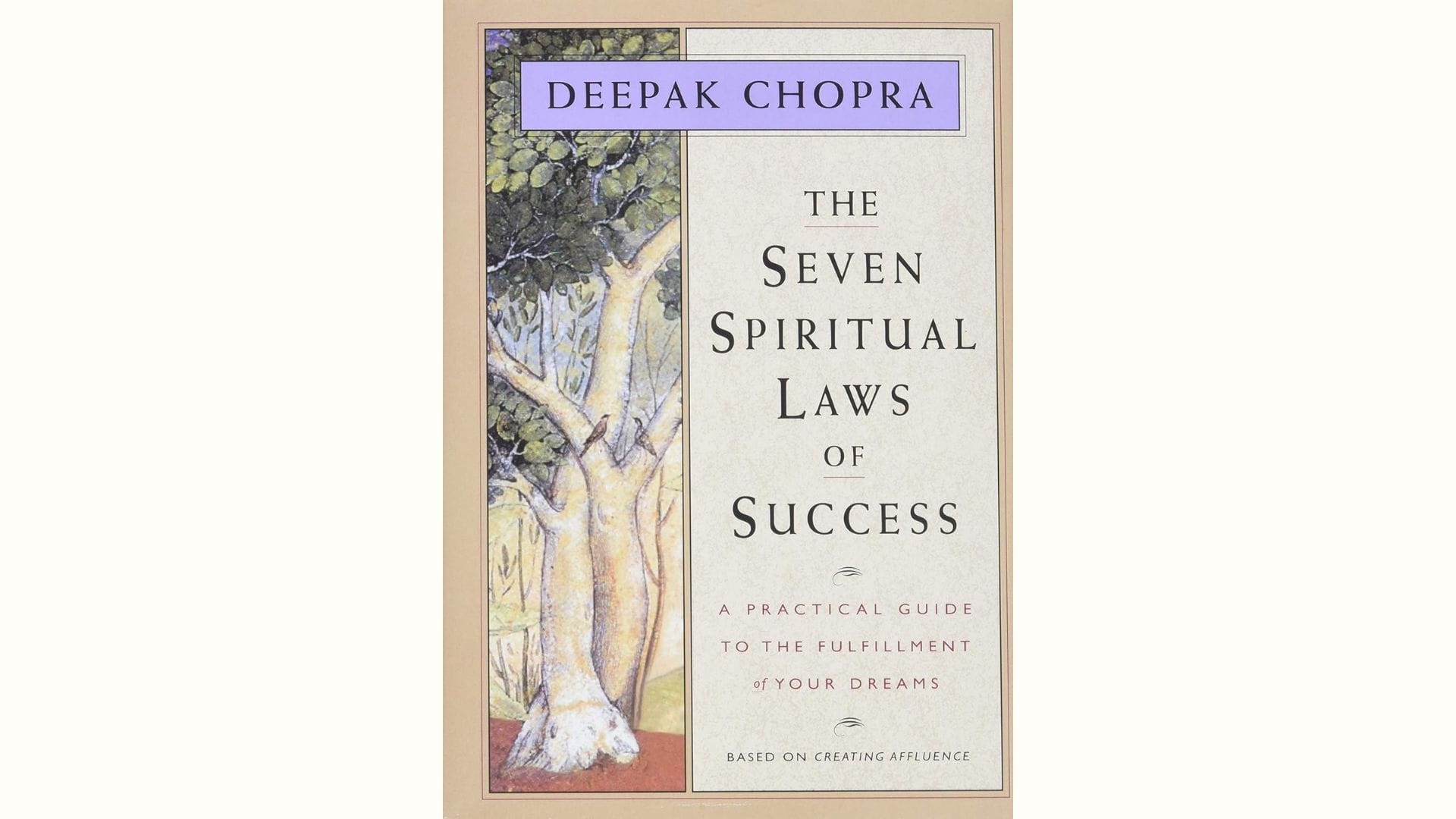Summary: The Seven Spiritual Laws of Success by Deepak Chopra

Deepak Chopra’s The Seven Spiritual Laws of Success is a timeless guide that redefines the meaning of success. Instead of focusing solely on material wealth, Chopra presents a holistic approach based on spiritual principles that bring balance, joy, and fulfillment. Below, we’ll explore the seven laws in detail, analyze how they apply to real life, and provide actionable steps for integrating them into your daily routine.
1. The Law of Pure Potentiality: Embracing Infinite Possibilities
The first spiritual law teaches that our authentic essence is pure consciousness—an unlimited field of creativity, possibilities, and wisdom. By connecting with our higher self, we access infinite potential.
How to Apply It:
- Spend time in silence and meditation.
Quieting the mind helps you reconnect with your true self and intuition. - Practice non-judgment.
Let go of labels and judgments about yourself and others. Instead, see the world with fresh eyes.
Practical Example:
Imagine you’re struggling to make a big decision. Instead of overthinking, spend time in silence. The clarity you gain will guide you toward the best choice aligned with your true self.
“In the silence of the mind, we access the field of pure potentiality.”
2. The Law of Giving: Activate the Flow of Abundance
Chopra emphasizes that the universe operates through giving and receiving. When you give freely—love, time, or material resources—you open yourself to receiving abundance in return.
How to Apply It:
- Give something every day.
It doesn’t have to be material; it can be a smile, a compliment, or your time. - Be open to receiving.
Allow others to give to you, and accept their gifts with gratitude.
Practical Example:
If you want more love in your life, start by giving love to others. Offer kindness, support, and appreciation without expecting anything in return.
“The more you give, the more you will receive, because you keep the abundance of the universe circulating in your life.”
3. The Law of Karma: Conscious Choices Create Your Reality
The Law of Karma teaches that every action generates a reaction. Your current reality results from past choices, and your actions shape your future.
How to Apply It:
- Make conscious decisions.
Before making a choice, ask yourself:- Will this choice bring happiness to me and those affected?
- What are the potential consequences?
- Take responsibility for your actions.
Own your choices, and learn from them.
Practical Example:
If you’re unhappy in your job, reflect on the choices that brought you there. Moving forward, choose opportunities that align with your passions and values.
“When you make any choice, you are participating in the law of karma.”
4. The Law of Least Effort: Flow with the Universe
This law teaches that nature’s intelligence functions with ease and grace. You achieve more with less struggle when you stop forcing things and align with life’s natural flow.
How to Apply It:
- Practice acceptance.
Stop resisting situations you cannot change. Accept them as they are. - Take inspired action.
Focus on what truly matters, and act with intention rather than pushing through resistance.
Practical Example:
Instead of controlling someone’s behavior, focus on how you respond. Accept the situation, and let your actions reflect peace and purpose.
“Nature’s intelligence functions effortlessly, with carefreeness, harmony, and love.”
5. The Law of Intention and Desire: Manifest Your Dreams
According to Chopra, your intentions and desires hold the blueprint for their fulfillment. By focusing on your desires, you can manifest your energy into reality.
How to Apply It:
- Set clear intentions.
Write down your goals, visualize them, and trust the process. - Detach from the outcome.
Focus on the present, and don’t obsess over how things will unfold.
Practical Example:
If you want to improve your health, clearly intend to adopt healthier habits. Visualize yourself living a healthy life, and trust that your consistent efforts will pay off.
“Inherent in every desire is the mechanics for its fulfillment.”
6. The Law of Detachment: Freedom from Fear and Control
The Law of Detachment teaches that to experience freedom and joy, one must release attachment to one's embrace. When you embrace uncertainty, life’s infinite possibilities open up.
How to Apply It:
- Let go of rigid expectations.
Trust that the universe will provide what you need, even if it looks different from what you envisioned. - Embrace uncertainty.
See the unknown as an opportunity for growth.
Practical Example:
Instead of obsessing over a job promotion, focus on doing your best work and trust that the right opportunities will come your way.
“Detachment is the willingness to step into the unknown, the field of all possibilities.”
7. The Law of Dharma: Discover Your Life’s Purpose
The final law is about finding your unique purpose in life. Each of us has special talents and a reason for being. When you align your life with your dharma, you experience true fulfillment.
How to Apply It:
- Identify your unique gifts.
Reflect on what you’re naturally good at and passionate about. - Serve others with your talents.
Use your gifts to make a positive impact on the world.
Practical Example:
A teacher’s dharma may be inspiring students, while an artist’s dharma could be creating beauty that uplifts others.
“There is a purpose for everyone. By serving others, you fulfill your dharma.”
Practical Tool: The 7-Day Spiritual Law Challenge
| Day | Spiritual Law | Action Step |
|---|---|---|
| Day 1 | Pure Potentiality | Spend 30 minutes in silence. Practice non-judgment. |
| Day 2 | Giving | Give something meaningful to someone. |
| Day 3 | Karma | Make a conscious choice and reflect on its impact. |
| Day 4 | Least Effort | Accept a challenging situation without resistance. |
| Day 5 | Intention and Desire | Write down a goal and visualize its outcome. |
| Day 6 | Detachment | Let go of control over an outcome. Trust the process. |
| Day 7 | Dharma | Reflect on your life purpose and how you can serve others. |
About Deepak Chopra
Deepak Chopra is an Indian-American author, speaker, and advocate for alternative medicine. Born in New Delhi, India, in 1946, Chopra initially pursued a career in medicine before becoming a leader in holistic health and spirituality. He has authored over 90 mindfulness, meditation, and personal transformation books, including bestsellers.
His work blends Eastern philosophy with modern science, promoting a balanced approach to well-being. Chopra’s teachings have inspired millions to explore spirituality, purpose, and holistic health.

